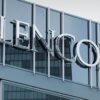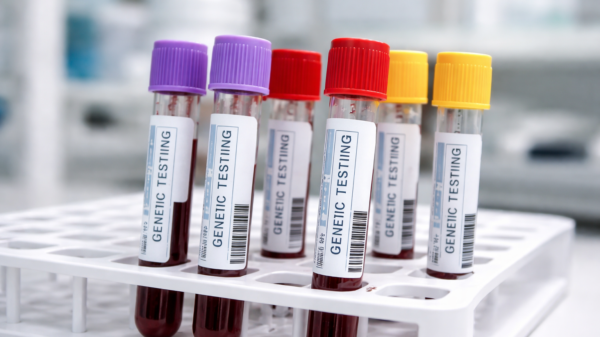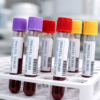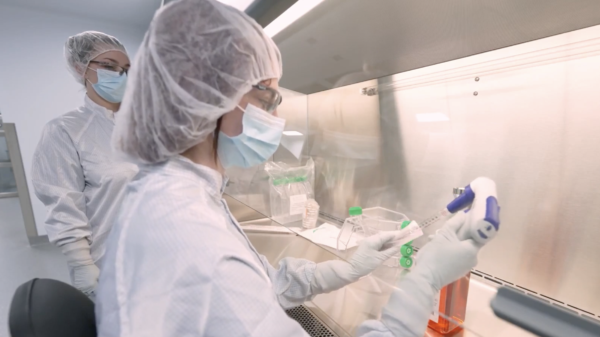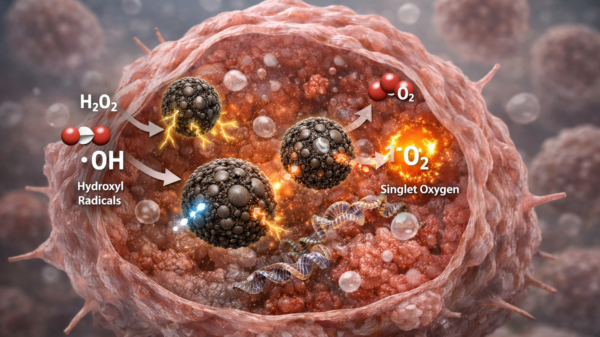Shares of clinical-stage biotech company, Evaxion A/S (NASDAQ: EVAX), jumped over 40 per cent to USD$11.09 per share on Wednesday.
Investors reacted to the company’s announcement that it will present comprehensive Phase 2 clinical data for its AI-designed melanoma vaccine, EVX-01, at the European Society for Medical Oncology (ESMO) Congress in Berlin from October 17-21.
The data will include two-year efficacy, safety, and immune response results. Specifically, Evaxion will present findings on best overall response, deepened response and conversion rates, and durability of response.
Furthermore, the presentation will include information on the breadth, magnitude, and duration of T-cell responses following booster immunization. The company also plans to share details of the vaccine’s safety profile.
“Being selected for oral presentation at ESMO, one of the world’s most prestigious oncology conferences, underscores the interest in EVX-01 and personalized cancer vaccines in general,” said Birgitte Rønø, CSO and interim CEO of Evaxion.
“We look forward to discussing the data with medical, scientific, and potential partner stakeholders.”
In addition to presenting data, Evaxion will maintain a booth throughout the conference to facilitate direct discussions with attendees. This approach allows investors, clinicians, and industry representatives to engage with the team and better understand the vaccine’s potential.
Evaxion developed EVX-01 using its AI-Immunology platform. It is a personalized cancer vaccine targeting advanced melanoma. Interim one-year Phase 2 data, presented at ESMO last year, already demonstrated a 69 per cent overall response rate, with tumour reduction observed in 15 of 16 patients.
Read more: Breath Diagnostics pioneers novel lung cancer breath test
Read more: Breath Diagnostics takes aim at lung cancer with One Breath
Investors react positive to Evaxion’s deal with Merck
Further, the data showed a statistically significant correlation between AI-based neoantigen predictions and immune responses, highlighting the platform’s precision in designing personalized therapies. Recent immune response data also showed that 80 per cent of EVX-01 vaccine targets triggered tumor-specific responses.
Investors also reacted to Evaxion’s strategic partnership with Merck (NYSE: MRK). Merck recently exercised its option to license the EVX-B3 vaccine candidate, paying USD$7.5 million upfront, with potential milestone payments of up to $592 million. Consequently, this agreement extends Evaxion’s cash runway into the first half of 2027, providing financial stability as it advances its clinical pipeline.
Analysts have noted that these combined developments position Evaxion as a company with multiple catalysts in the near term. H.C. Wainwright raised its price target for EVAX to $16, citing the Merck deal and upcoming Phase 2 results as key drivers for the stock. In addition, the strong immune response data and the company’s AI-driven approach to personalized vaccines further reinforce investor confidence.
Furthermore, Evaxion’s approach may reshape cancer immunotherapy. By leveraging AI to select patient-specific neoantigens, the company aims to optimize immune responses while minimizing adverse effects. Experts suggest that if the Phase 2 data confirms durability and safety, EVX-01 could advance rapidly toward later-stage trials and potential regulatory approval.
In the meantime, investors are closely monitoring trading activity and news flow. Shares of Evaxion continue to experience heightened volatility, reflecting both excitement over upcoming data presentations and broader enthusiasm for AI-powered medical innovations.
Read more: Breath Diagnostics gives the public the chance to join the fight against cancer
Read more: Breath Diagnostics leader speaks at lung cancer education event in Louisville
Several companies are fighting cancer
Evaxion A/S is only one company making headway against cancer.
Several companies are at the forefront of revolutionizing cancer detection and treatment.
Grail Inc (NASDAQ: GRAL) is a biotechnology company specializing in multi-cancer early detection. Its flagship product, the Galleri test, is a blood-based screening tool designed to detect over 50 types of cancer before symptoms appear.
The test analyzes DNA methylation patterns to identify cancer signals, aiming to catch cancers that lack standard screening methods. Grail has enrolled over 300,000 participants in clinical studies to validate its technology.
Guardant Health (NASDAQ: GH) is another publicly traded company making significant strides. The company focuses on precision oncology through blood-based cancer diagnostics.
Its tests, such as Guardant360 and Shield, provide insights into tumour genomics and early detection of cancers like colorectal cancer.
These tests help guide treatment decisions and monitor disease progression, offering non-invasive alternatives to traditional biopsy methods.
Meanwhile, several startups are innovating in this space. Breath Diagnostics Inc. is developing OneBreath, a non-invasive breath analysis technology for early lung cancer detection.
The device analyzes a single exhaled breath to detect specific volatile organic compounds associated with lung cancer.
In clinical trials involving over 800 patients, OneBreath demonstrated 94 per cent sensitivity and 85 per cent specificity, outperforming traditional CT scans in accuracy and reducing false positives.
Another startup, Earli Inc., is focused on creating programmable genetic constructs that activate only in cancer cells.
These constructs are designed to produce therapeutic agents that target and kill cancer cells from within. By turning tumours against themselves, Earli aims to develop treatments that are highly specific and minimize damage to healthy tissue.
.
joseph@mugglehead.com



